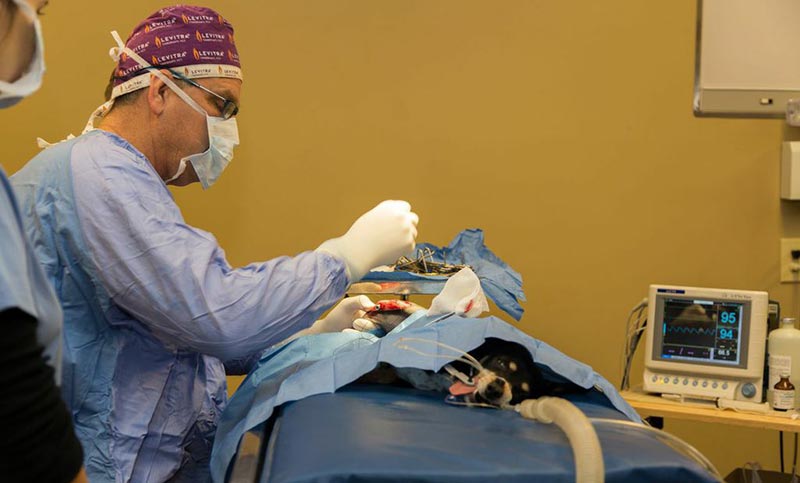Pet Age and How It Affects Surgery

Is my pet too old for surgery?
Age is and will continue to be a valid concern when considering helpful surgeries or procedures that could improve your pet's quality of life. However, there are a few myths about a pet's age to clarify.
First, age is not a disease! Cancer, kidney and liver malfunction, hormone imbalances-these are diseases -but all are treatable if caught before irreversible damage to an organ is done. But, AGE within itself IS NOT A DISEASE.
That is not to say organs do not deteriorate as your pet ages. This deterioration is why physical exams, blood work, and urinalysis are recommended. Pre-anesthetic blood work, as well as the blood work given with your pet's annual and semi-annual physicals, help your veterinarian check for "malfunctions" with your pet's kidneys and liver. This blood work also ensures blood cell counts are normal, thus ruling out undiagnosed infections, anemia, and blood clotting disorders-before anesthesia is given and surgery is performed. Just because a value may be high or low doesn't necessarily mean a life-saving procedure should be canceled. What a slight abnormal reading does mean is your veterinarian will adjust certain medication doses before and after surgery or anesthesia levels will be adjusted to accommodate the blood work values. In short, blood work at any age is helpful before anesthesia. (This is why blood work is required before "humans" undergo anesthesia).
To add clarity to this "old age" myth, pets have an "actual" age and a "functional" age. As a veterinarian, I am more concerned with your pet's "functional" age. The "functional" age takes into account health factors; your pet's "actual" age does not. Blood work and other diagnostic procedures give me a much better picture of how well your pet's organs and vital systemic systems are "functioning". Your pet's "actual" age does not. "Actual" age is merely a number a veterinarian uses as a reference guideline. For example, a veterinarian may elect to perform a procedure on a healthy 14-year-old pet whose blood work was normal; but cancel surgery for a 6-year-old pet whose blood work indicated advanced kidney or liver disease. Or surgery might get postponed for a 3-year-old pet whose complete blood cell count revealed a possible clotting disorder or anemia while surgery for a "functionally" healthy 12-year old pet was performed.
The bottom line is AGE ISN'T A DISEASE. If your pet's physical exam and blood work are fairly normal, the pet is in overall good health and has a fixable problem, a procedure that could enhance his/her quality of life should be considered.

